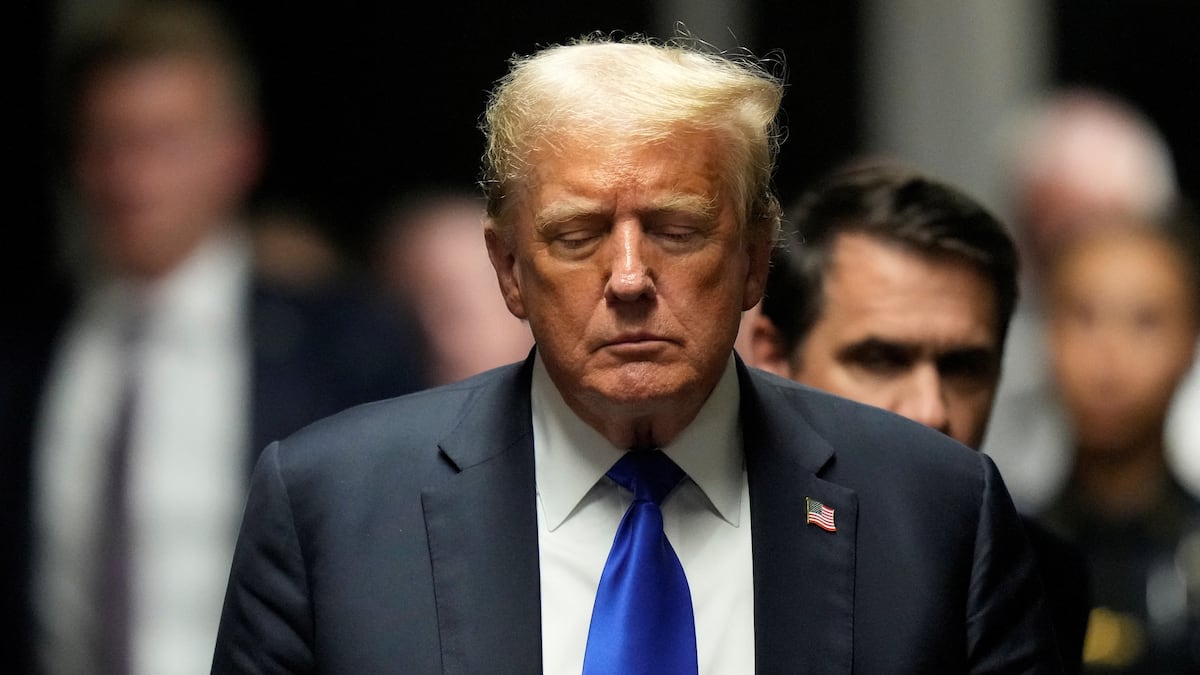Trump seeks to challenge ‘Stormy Daniels case’ verdict due to Supreme Court ruling on immunity | USA Elections

Donald Trump’s legal team has asked for permission to file a motion this Monday to challenge the former president’s conviction in a criminal trial for bribing a porn actress in New York, based on the decision of the United States Supreme Court a few hours earlier regarding the president’s immunity, sources familiar with the initiative have informed CNN and the newspaper the new York Times,
Trump’s chief lawyer submitted a letter to Judge Juan Merchan requesting permission to file a motion to challenge the verdict, with only ten days left until the conviction is announced. If the judge allows Trump to file this motion, the sentencing could be delayed to allow parties to report on the issue. The letter will not be made public until Tuesday at the earliest, after which prosecutors will have a chance to respond.
Faithful to the delaying tactics displayed during this and the rest of the processes facing their client – three other criminal cases in Washington, Georgia and Florida – Trump’s lawyers have asked the judge to postpone the July 11 sentencing while he considers whether a ruling by the Supreme Court would affect the sentence. However, canceling it hypothetically is a remote possibility, since the Manhattan case focuses on acts that Trump committed not as president, but as a candidate.
On May 30, a Manhattan jury found Trump guilty of 34 counts of falsifying business records to hide the payment of a bribe to the actress on the eve of the 2016 elections, which Democrat Hillary Clinton won. The ulterior motive for this payment was to prevent the scandal of his extramarital affair from harming his electoral chances, which the prosecutor’s office considered “a criminal conspiracy to manipulate the outcome” of those elections. Trump is the first former US president to be convicted of a crime.
His lawyers’ efforts have already received a brief reward: Prosecutor Alvin Bragg’s office did not make a sentencing recommendation to the judge on Monday about imprisoning Trump, as planned, although the recommendation was kept secret until the 11th. Alvin Bragg’s team declined to comment on the matter. The punishment could be a maximum of four years in prison or, given that he has no criminal record, a conditional release.
Trump’s effort to challenge his conviction comes after the Supreme Court ruled earlier today that presidents enjoy absolute immunity from prosecution for their major official acts. The high court’s decision could not be more timely for his interests, as in two weeks, at the Republican National Convention in Milwaukee to crown what will almost certainly be the Republican nominee for reelection, he seeks to avoid the first indictment he faces in the November election in three other criminal proceedings, all with political roots, two of them for trying to overturn the result of the 2020 election and another for taking classified documents when he left the White House in January 2021.
To know what happens outside is to understand what will happen inside, don’t miss anything.
keep reading
The Supreme Court’s decision, which was divided along ideological lines – the court’s conservative majority of six members compared to three liberal justices – determined that Trump can claim criminal immunity for some of his actions as president before leaving office, which is likely to further delay the three cases, particularly his federal trial for election sabotage arising from his actions on January 6, 2021, when an angry mob of his followers stormed the Capitol after being insulted by the still-president. If Republicans are re-elected in November, he could pardon himself because it is a federal case.
Before the Supreme Court today exempted him from its ruling on presidential immunity, making it impossible for cases over Republicans’ role in the 2020 election to be decided before November, Trump’s legal team also scored another small victory: Last week, Judge Merchan partially lifted a gag order that prevented the former president from criticizing witnesses, jurors and judicial officials during the trial. Trump will now be able to comment on them.
Follow all the information about the elections in the United States Our weekly newsletter,
(tags to translate)US elections